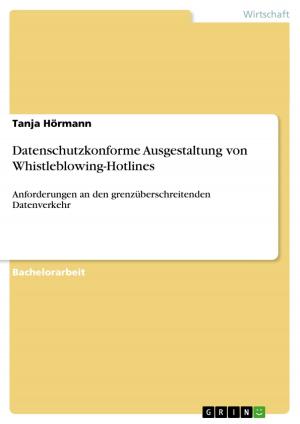Statelessness and 'right to have rights'. Importance of citizenship in protecting human rights of stateless communities
| Author: | Arshi Aggarwal | ISBN: | 9783656866510 |
| Publisher: | GRIN Verlag | Publication: | December 23, 2014 |
| Imprint: | GRIN Verlag | Language: | English |
| Author: | Arshi Aggarwal |
| ISBN: | 9783656866510 |
| Publisher: | GRIN Verlag |
| Publication: | December 23, 2014 |
| Imprint: | GRIN Verlag |
| Language: | English |
Thesis (M.A.) from the year 2014 in the subject Politics - International Politics - Topic: Public International Law and Human Rights, grade: 66, University of Sheffield (Department of Politics), course: Thesis, language: English, abstract: A stateless person is an individual 'who is not considered as a national by any State under the operation of its law'. In other words, a stateless individual is a person who does not legally belong anywhere. No government is responsible for his or her rights, survival or existence. Stateless people are forced to lead an illegal life and are highly vulnerable to increased ostracism, discrimination and insecurity. Where citizenship is the norm, statelessness is an exceptional phenomenon. Some people are stateless because of ethnic persecution; others lost their citizenship during reformation of the state; some simply fell between the cracks of citizenship laws; and others passed on their statelessness to their children. National citizenship provides people with a sense of identity and is a key to full participation in society (UNHCR, 2012:2). Since only 'citizens' are allowed an unrestricted right to enter and reside in a country under international law, stateless people are often left without any residence permit and are subject to repeated or continuous detention. The purpose of this project is to analyse and establish the importance of a 'right to have rights' or citizenship by examining and evaluating the plight of existing stateless people in Latvia, Estonia and Myanmar. The study explores the human rights conditions created due to statelessness, adequacy of international organisations' response to such situations and potency of current legal framework for the protection of stateless individuals.
Thesis (M.A.) from the year 2014 in the subject Politics - International Politics - Topic: Public International Law and Human Rights, grade: 66, University of Sheffield (Department of Politics), course: Thesis, language: English, abstract: A stateless person is an individual 'who is not considered as a national by any State under the operation of its law'. In other words, a stateless individual is a person who does not legally belong anywhere. No government is responsible for his or her rights, survival or existence. Stateless people are forced to lead an illegal life and are highly vulnerable to increased ostracism, discrimination and insecurity. Where citizenship is the norm, statelessness is an exceptional phenomenon. Some people are stateless because of ethnic persecution; others lost their citizenship during reformation of the state; some simply fell between the cracks of citizenship laws; and others passed on their statelessness to their children. National citizenship provides people with a sense of identity and is a key to full participation in society (UNHCR, 2012:2). Since only 'citizens' are allowed an unrestricted right to enter and reside in a country under international law, stateless people are often left without any residence permit and are subject to repeated or continuous detention. The purpose of this project is to analyse and establish the importance of a 'right to have rights' or citizenship by examining and evaluating the plight of existing stateless people in Latvia, Estonia and Myanmar. The study explores the human rights conditions created due to statelessness, adequacy of international organisations' response to such situations and potency of current legal framework for the protection of stateless individuals.















